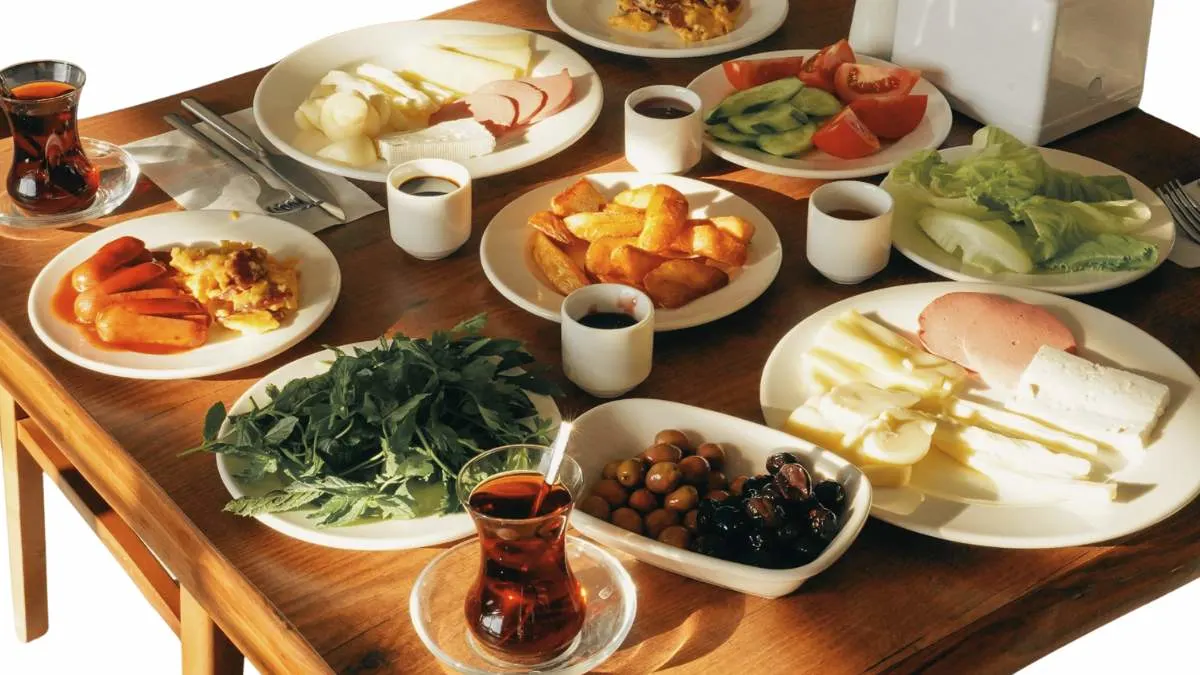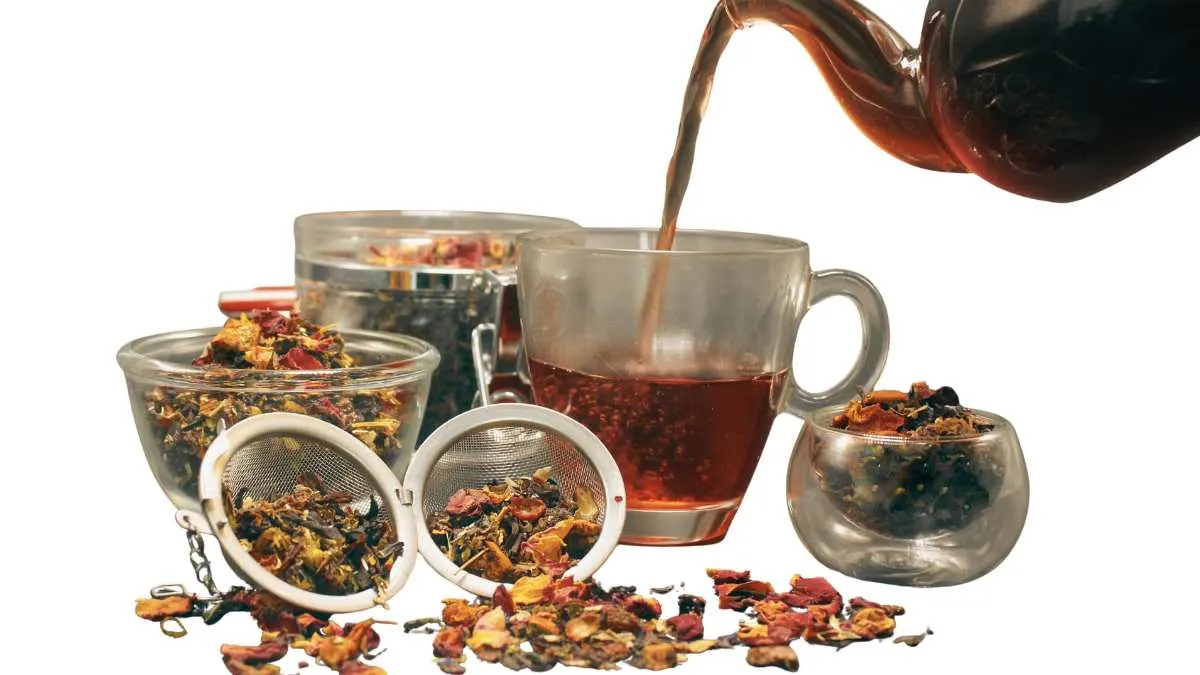Tea—it’s the world’s most widely consumed beverage, second only to water. From the rich, fragrant aroma of freshly brewed tea to its soothing and comforting qualities, tea is not only a drink, but an experience. Whether you prefer a traditional black tea, a refreshing herbal infusion, or a delicately balanced green tea, there’s something about this versatile beverage that makes it beloved across the globe.
In this article, we’ll dive deep into the world of tea, exploring its history, health benefits, the different types of teas, how to brew them to perfection, and some helpful tips for tea enthusiasts. Let’s explore the fascinating world of tea!

The History of Tea: A Brief Overview:
The origins of tea trace back over 5,000 years to China. According to legend, tea was discovered by Emperor Shen Nong in 2737 BC when some tea leaves blew into a pot of boiling water he was brewing. However, historical records suggest that tea became popular as a medicinal drink during the Tang Dynasty (618–907 AD).
Tea spread to Japan, Korea, and then to the rest of the world during the early centuries. In the 17th century, tea became an integral part of British culture, with the famous afternoon tea tradition becoming established by Anna, the Duchess of Bedford. Today, tea is enjoyed across the globe, from the hustle and bustle of London tea rooms to the tranquil tea gardens of India and China.
The Health Benefits of Tea:
Drinking tea is more than just a pleasurable experience—it also offers several health benefits. Each type of tea is packed with unique compounds that provide various health advantages. Here are some of the most notable benefits of teas:
-
Rich in Antioxidants: Tea is loaded with antioxidants, particularly polyphenols, which help fight free radicals in the body. Antioxidants are crucial for protecting cells from oxidative stress, which can contribute to aging and various diseases.
-
Boosts Immune System: Many teas, such as green and herbal blends like echinacea and ginger, are known to have immune-boosting properties. The high levels of vitamin C in teas like lemon and hibiscus can help strengthen your immune system and ward off colds.
-
Supports Heart Health: Drinking tea, especially green and black varieties, has been linked to improved heart health. Studies suggest that tea can help lower cholesterol, regulate blood pressure, and reduce the risk of cardiovascular diseases.
-
Enhances Mental Clarity and Focus: The caffeine in tea is a milder stimulant than that in coffee, providing a gentle energy boost without the jitteriness. Teas like green and black tea can improve focus, concentration, and even cognitive function over time.
-
Aids Digestion: Certain herbal teas, such as peppermint, ginger, and chamomile, are known for their ability to soothe the stomach, relieve indigestion, and reduce bloating.
-
Hydrates the Body: Unlike sugary sodas and juices, tea is naturally low in calories and can be a great way to stay hydrated throughout the day. Many people choose tea as a healthier alternative to sugary drinks.
-
Promotes Relaxation: Herbal teas such as chamomile, lavender, and lemon balm have been used for centuries to promote relaxation, reduce stress, and aid sleep. These teas can help calm the mind and body after a long day.
Types of Tea: From Black to Herbal:
Tea comes in a variety of forms, each offering its own distinct taste and health benefits. Here are the main types of teas you’ll encounter:
-
Black Tea: This is the most commonly consumed tea in the world. Black tea undergoes full oxidation, which gives it a robust, bold flavor. Popular varieties of black tea include Darjeeling, Assam, Earl Grey, and English Breakfast. Black tea has a higher caffeine content compared to other types of teas, making it an ideal choice for those seeking an energy boost.
-
Green Tea: Green tea is made from unoxidized tea leaves, giving it a more delicate flavor and higher antioxidant content. It’s well-known for its health benefits, including boosting metabolism, promoting fat loss, and improving heart health. Popular types of green tea include Sencha, Matcha, and Jasmine Green Tea.
-
White Tea: White tea is the least processed of all teas. It’s made from young tea leaves and buds that are simply dried and minimally processed, preserving its delicate flavor. White tea is known for being light and slightly sweet. Some popular varieties include Silver Needle and White Peony.
-
Oolong Tea: Oolong tea is partially fermented, placing it somewhere between black and green teas in terms of oxidation. Oolong tea has a floral or fruity taste, and it’s often used in traditional Chinese tea ceremonies. It is believed to have many health benefits, such as aiding weight loss and boosting metabolism.
-
Herbal Tea: Although not technically “tea” since it doesn’t come from the Camellia sinensis plant, herbal teas are made from dried herbs, fruits, flowers, and spices. Some common herbal teas include peppermint, chamomile, rooibos, and hibiscus. These teas are caffeine-free and are often used for relaxation, digestive health, and immunity.
-
Flavored Tea: Flavored teas are created by blending traditional teas (black, green, or white) with fruits, flowers, and herbs. Popular flavored teas include Earl Grey (flavored with bergamot), chai (spiced with cinnamon and cloves), and fruit-infused teas like strawberry or raspberry.
Read Next: 6 Afternoon Tea Spots In Cambridge
How to Brew the Perfect Cup of Tea:
Brewing tea is an art that can make all the difference in the taste and aroma of your cup. To get the perfect brew, follow these tips:
-
Use Fresh, Filtered Water: The quality of water plays a crucial role in the taste of your tea. Always use fresh, filtered water to ensure the cleanest, most flavorful brew.
-
Adjust Water Temperature: Different types of teas require different water temperatures. For black tea, use water just below boiling (around 200°F or 93°C). For green tea, lower the water temperature to around 170°F (77°C) to prevent bitterness. White and oolong teas should be brewed at similar lower temperatures.
-
Measure the Tea: Use about one teaspoon of loose-leaf tea per cup (8 ounces) of water. For bagged teas, follow the instructions on the box for the right amount of tea.
-
Steep for the Right Time: The steeping time will vary based on the type of tea. Black teas should steep for 3-5 minutes, green teas for 2-3 minutes, and herbal teas for 5-7 minutes. Over-steeping can cause bitterness, so be mindful of the time.
-
Experiment with Flavors: Don’t be afraid to add your personal touch to your tea. Try adding lemon, honey, ginger, or a splash of milk to enhance the flavor of your brew.
Final:
-
Explore Different Varieties: There’s a whole world of teas out there beyond the basic black or green varieties. Experiment with different types, from white teas to herbal blends, to discover what you love best.
-
Store Your Tea Properly: To preserve the freshness and flavor of your teas, store them in airtight containers away from light, moisture, and heat.
-
Brew Loose-Leaf Tea: While tea bags are convenient, loose-leaf tea often offers better flavor and aroma. Invest in a good-quality tea infuser or teapot for the best brewing experience.
-
Create a Tea Ritual: One of the joys of drinking tea is the ritual. Whether it’s a quiet morning tea session or an afternoon tea with friends, make tea time something special that you look forward to.
-
Share Your Tea: Tea is best enjoyed with others. Whether you’re hosting a tea party or simply sharing a cup with a friend, tea creates connections and memories.
FAQs:
Q. What’s the healthiest type of tea?
Green tea is often considered the healthiest due to its high antioxidant content, but all types of tea have health benefits. Choose the one that best suits your taste and needs.
Q. Can I drink tea before bed?
Herbal teas like chamomile and peppermint are excellent for relaxing before bed, as they have calming properties. Avoid caffeinated teas like black or green tea in the evening.
Q. How much caffeine is in tea?
The caffeine content in tea varies. Black tea contains the most caffeine, followed by oolong, green, and white teas. Herbal teas are caffeine-free.
Q. How do I store my tea?
Store your tea in a cool, dry place in an airtight container, away from light and strong odors, to

